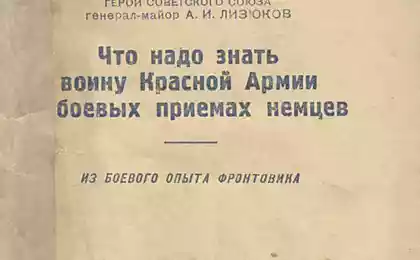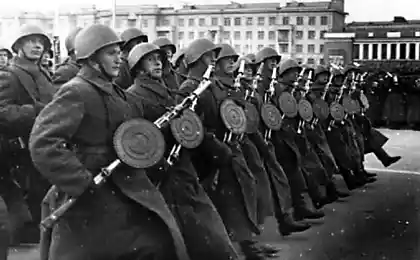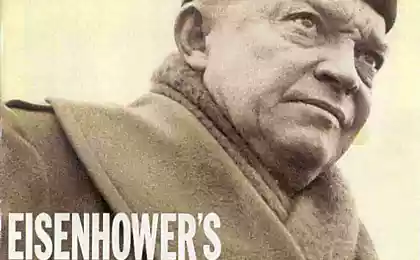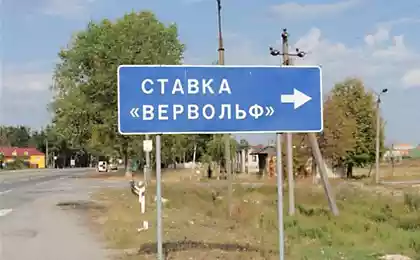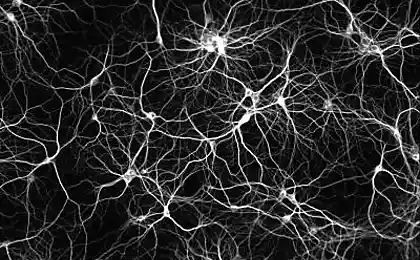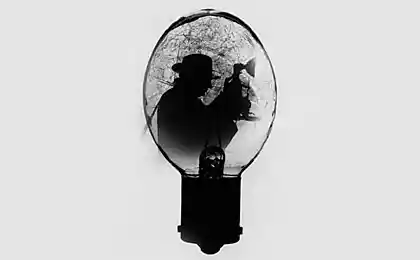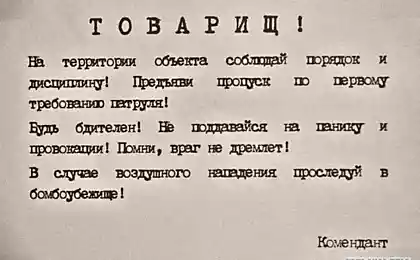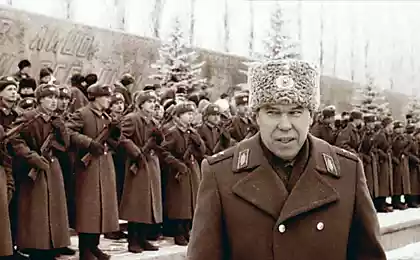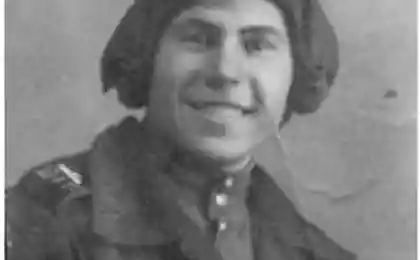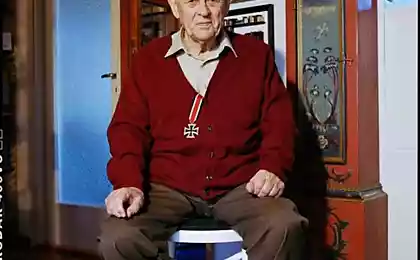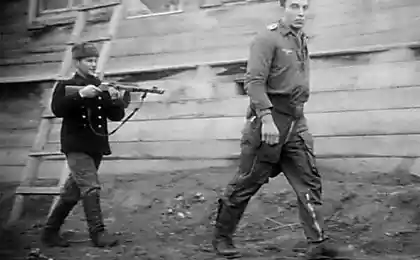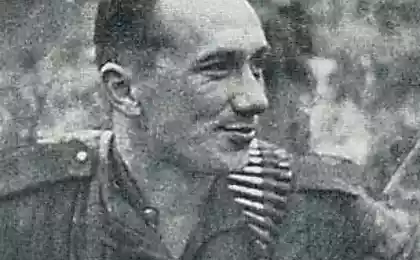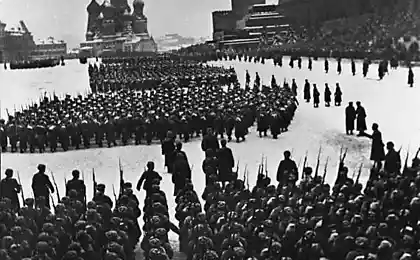529
7 German memories of the battle for Moscow
December 5, 1941 began a counter-offensive of the Soviet troops near Moscow. Hitler's dream of successful blitzkrieg crumbled to dust. Soviet troops were advancing, severe frosts began, the Germans increasingly remembered Napoleon ...
1. G.Blyumentrit
Memories of the Grand Army of Napoleon haunted us like a ghost. The book of memoirs of the Napoleonic general Caulaincourt, always lay on the table of Field Marshal von Kluge, he became his bible. Becoming more and more matches with the events of 1812, but these subtle omens paled in comparison with the period of the mud, or as it is called in Russia, slush, which is now followed us like a plague.
Now the political leaders of Germany, it is important to understand that the days of blitzkrieg thing of the past. We confronted the army of his fighting qualities far superior to all other armies with whom we have ever encountered on the battlefield.
2. William Shirer
Nazi generals could not understand why the Russian, despite the openly tyrannical regime and the catastrophic consequences of the first German attacks, survived, not a complete failure, like the French, and many other peoples and nations that are falling apart from the less powerful attacks.
Continued under the cut ...
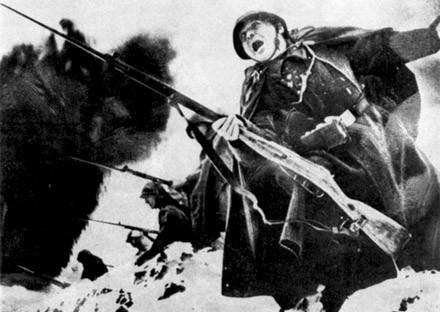
3. Hans-Ulrich Rudel
It is necessary to December and the thermometer drops below 40-50 degrees below zero. Clouds float low, anti-aircraft guns are rampant. We have reached the limit of our ability to fight. No bare necessities. Machines are, transport is not working, there is no fuel and ammunition. The only form of transport - a sleigh. The tragic scene retreat happen more often. We've got quite a few aircraft. At low temperatures, the engines are short-lived. If before, having initiative, we flew in support of our troops on the ground, but now we are fighting to hold back the advancing Soviet troops.
4. Franz-Friedrich Fedor von Bock
Russian managed to restore combat capability almost completely broken our divisions in a remarkably short time, brought up new divisions from Siberia, Iran and the Caucasus and replace lost at an early stage of the war numerous artillery rockets launchers. Today, a group opposed to the Army 24 division - mainly whole - more than it was on 15 November. Losses among the officers and noncommissioned officers shocking. In percentage terms, they are a lot higher than the losses among the rank and file of
5. Shteydle L.
Fifth of December to develop a strong air strikes on the rear communications and source areas, where until now it was possible to feel safe. The Red Army began on a broad front general offensive, in which German troops were pushed back in places up to 400 kilometers. Several dozens of the most combat-ready German divisions were smashed. On both sides of the highway were dead and frozen. It was the prologue to Stalingrad; Blitzkrieg finally failed.
6. Guenther Bauer
Howling catching up to us anguish and apprehension. But even he was better than the howl of "Stalin's organ". So we called Russian secret weapon, which they called "Katyusha". The shells manufactured this weapon more like a rocket. The incredible roar of explosions, flames - all terribly scared our soldiers. When we fired "Katyusha", we burned technology, people were dying. However, fortunately, the Russian was a little like plants and shells to them. Therefore, the damage done by these weapons was not too noticeable. Its use made it more of a psychological effect.
Talking about the psychological impact on us, we can not say about the Soviet propaganda. From time to time we could hear the sounds of amplified loudspeakers popular German songs that awakens in us the longing for home comfort. Following this sounded propaganda appeals to German. They played on the fact that we are exhausted, hungry, and some of us had time to despair. Russian called us, "Surrender of the victorious Red Army, then you return home after the war," "Surrender! We are waiting for you comfort women and a lot of food! »
Usually, these calls have caused only bitterness. But there were those few who lose heart and dark night to the side of Russian. Their fate I do not know, but judging by what happened in Germany after our defeat, I think, hardly any of the defectors received the promised benefits.
7. Otto Skorzeny
The strategy of war, Reich was better, our generals have stronger imagination. However, since the ordinary soldier, and to the company commander, Russian were equal to us - courageous, resourceful, talented camoufleur. They fiercely resisted and were always ready to sacrifice their lives ... Russian officers from the division commander and below were younger and our resolute. From October 9 to December 5, Division "Reich", 10th Panzer Division and other parts of the 16th Panzer Corps lost 40 percent of full-time staff. Six days later, when our positions were attacked by newcomers Siberian divisions, our losses have exceeded 75 percent.
via [b]
Source:
1. G.Blyumentrit
Memories of the Grand Army of Napoleon haunted us like a ghost. The book of memoirs of the Napoleonic general Caulaincourt, always lay on the table of Field Marshal von Kluge, he became his bible. Becoming more and more matches with the events of 1812, but these subtle omens paled in comparison with the period of the mud, or as it is called in Russia, slush, which is now followed us like a plague.
Now the political leaders of Germany, it is important to understand that the days of blitzkrieg thing of the past. We confronted the army of his fighting qualities far superior to all other armies with whom we have ever encountered on the battlefield.
2. William Shirer
Nazi generals could not understand why the Russian, despite the openly tyrannical regime and the catastrophic consequences of the first German attacks, survived, not a complete failure, like the French, and many other peoples and nations that are falling apart from the less powerful attacks.
Continued under the cut ...

3. Hans-Ulrich Rudel
It is necessary to December and the thermometer drops below 40-50 degrees below zero. Clouds float low, anti-aircraft guns are rampant. We have reached the limit of our ability to fight. No bare necessities. Machines are, transport is not working, there is no fuel and ammunition. The only form of transport - a sleigh. The tragic scene retreat happen more often. We've got quite a few aircraft. At low temperatures, the engines are short-lived. If before, having initiative, we flew in support of our troops on the ground, but now we are fighting to hold back the advancing Soviet troops.
4. Franz-Friedrich Fedor von Bock
Russian managed to restore combat capability almost completely broken our divisions in a remarkably short time, brought up new divisions from Siberia, Iran and the Caucasus and replace lost at an early stage of the war numerous artillery rockets launchers. Today, a group opposed to the Army 24 division - mainly whole - more than it was on 15 November. Losses among the officers and noncommissioned officers shocking. In percentage terms, they are a lot higher than the losses among the rank and file of
5. Shteydle L.
Fifth of December to develop a strong air strikes on the rear communications and source areas, where until now it was possible to feel safe. The Red Army began on a broad front general offensive, in which German troops were pushed back in places up to 400 kilometers. Several dozens of the most combat-ready German divisions were smashed. On both sides of the highway were dead and frozen. It was the prologue to Stalingrad; Blitzkrieg finally failed.
6. Guenther Bauer
Howling catching up to us anguish and apprehension. But even he was better than the howl of "Stalin's organ". So we called Russian secret weapon, which they called "Katyusha". The shells manufactured this weapon more like a rocket. The incredible roar of explosions, flames - all terribly scared our soldiers. When we fired "Katyusha", we burned technology, people were dying. However, fortunately, the Russian was a little like plants and shells to them. Therefore, the damage done by these weapons was not too noticeable. Its use made it more of a psychological effect.
Talking about the psychological impact on us, we can not say about the Soviet propaganda. From time to time we could hear the sounds of amplified loudspeakers popular German songs that awakens in us the longing for home comfort. Following this sounded propaganda appeals to German. They played on the fact that we are exhausted, hungry, and some of us had time to despair. Russian called us, "Surrender of the victorious Red Army, then you return home after the war," "Surrender! We are waiting for you comfort women and a lot of food! »
Usually, these calls have caused only bitterness. But there were those few who lose heart and dark night to the side of Russian. Their fate I do not know, but judging by what happened in Germany after our defeat, I think, hardly any of the defectors received the promised benefits.
7. Otto Skorzeny
The strategy of war, Reich was better, our generals have stronger imagination. However, since the ordinary soldier, and to the company commander, Russian were equal to us - courageous, resourceful, talented camoufleur. They fiercely resisted and were always ready to sacrifice their lives ... Russian officers from the division commander and below were younger and our resolute. From October 9 to December 5, Division "Reich", 10th Panzer Division and other parts of the 16th Panzer Corps lost 40 percent of full-time staff. Six days later, when our positions were attacked by newcomers Siberian divisions, our losses have exceeded 75 percent.
via [b]
Source:
